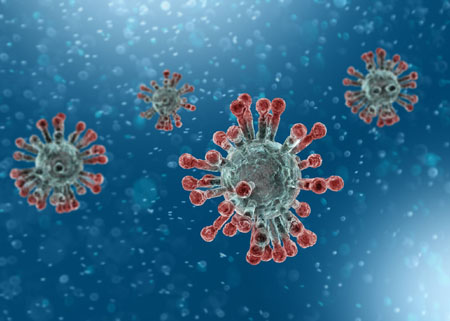by WorldTribune Staff, April 21, 2020
The fatality rate for coronavirus in southern California is “much lower” than previously believed because the infection rate “far exceeds” the number of confirmed cases, according to a new study of the virus in Los Angeles County.
 Research conducted by the University of Southern California and the Los Angeles County Department of Public Health shows that about 4.1 percent of the county’s adult population carries the coronavirus antibody. That figure is 28 to 55 times higher than the 7,994 confirmed cases reported in Los Angeles County in early April.
Research conducted by the University of Southern California and the Los Angeles County Department of Public Health shows that about 4.1 percent of the county’s adult population carries the coronavirus antibody. That figure is 28 to 55 times higher than the 7,994 confirmed cases reported in Los Angeles County in early April.
“These results indicate that many persons may have been unknowingly infected and at risk of transmitting the virus to others,” Dr. Barbara Ferrer, director of the public health department, said in a press release.
Adjusted for the margin of error, the percentage of adults in the county with the COVID-19 antibody ranges from 2.8 percent to 5.6 percent, which translates to between 221,000 and 442,000 adults. The county had recorded 617 deaths from the virus as of Monday.
“We haven’t known the true extent of COVID-19 infections in our community because we have only tested people with symptoms, and the availability of tests has been limited,” said USC professor and lead researcher Neeraj Sood. “The estimates also suggest that we might have to re-calibrate disease prediction models and re-think public health strategies.”
A similar study was released last week by Stanford University. It found that, in Santa Clara County, 2.8 percent to 4.2 percent of residents tested positive for carrying antibody resistance to the coronavirus. That percentage far exceeded the number of recorded cases in the county.
The Stanford study projected a mortality rate from the coronavirus of 0.12 percent to 0.2 percent. In early March, the World Health Organization (WHO) reported that the mortality rate from COVID-19 worldwide was 3.4 percent. By comparison, the death rate from the seasonal flu is typically about 0.1 percent.
In Los Angeles County, the first round of study results came from a rapid antibody test administered April 10-11 at six sites using 863 participants who were “recruited via a proprietary database that is representative of the county population.”
The antibody test “is helpful for identifying past infection, but a PCR [polymerase chain reaction] test is required to diagnose current infection,” said the LA health department in a statement.
“These findings underscore the importance of expanded polymerase chain reaction (PCR) testing to diagnose those with infection so they can be isolated and quarantined, while also maintaining the broad social distancing interventions,” said Dr. Ferrer.
Intelligence Brief __________ Replace The Media
